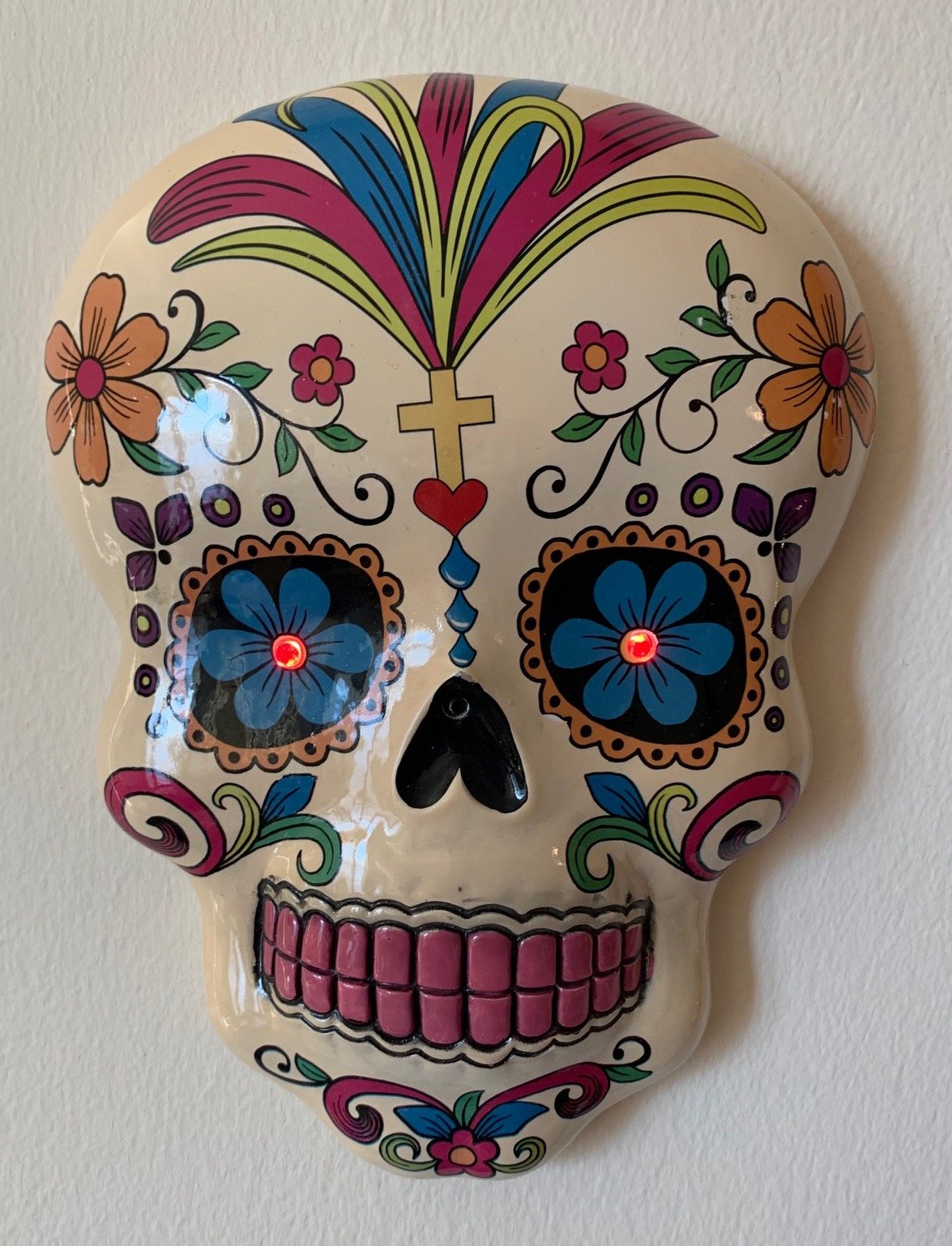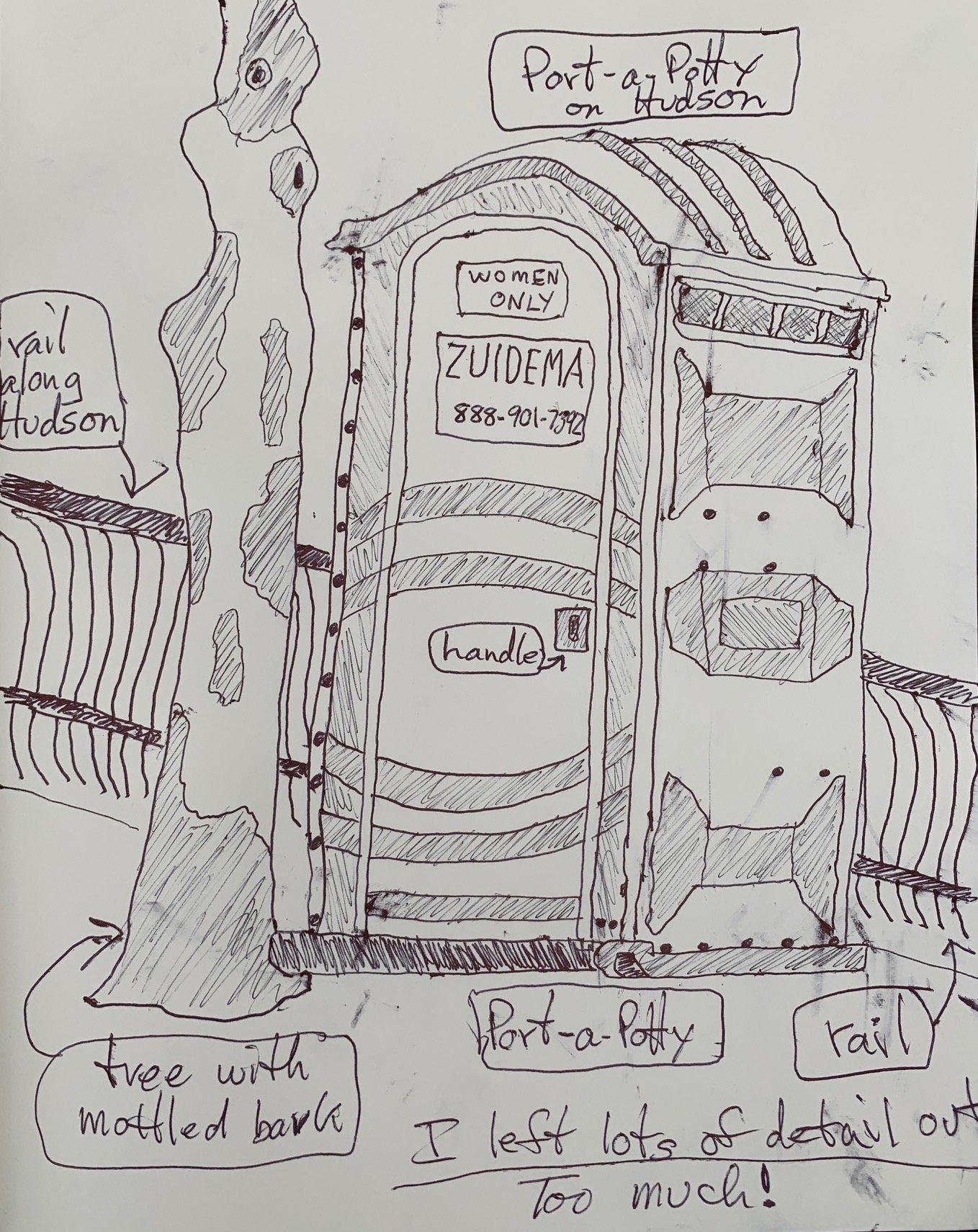Why Time Flies When You’re Old
This skull is one of several memento mori in my apartment. Looking death in the eye makes it freeze, like a monster caught in headlights. Or so I like to believe.
October 5, 2023. Stop writing about death and getting old, my sister said, it’s depressing. Yeah, I get that, but you’re supposed to write about what you know, and I know about getting old.
Or do I? A colleague researching a book on aging knows much more than I do about getting old, even though she’s 19 years younger than me. We’re into “What Mary Didn’t Know” territory, the divide between subjective and objective knowledge.
Also, let’s face it, as a science journalist, I often pontificate on topics I know little about. Like quantum mechanics, entropy, mathematics. Rather than what I know, I write, I suppose, about what obsesses me. Like death and getting old.
Which brings me to my sense that time is speeding up. Just yesterday, I was grooving on summer vacation, basking on a beach, and suddenly Halloween looms! I’m trapped in a reverse Zeno effect, in which the finish line, far from receding endlessly, rushes toward me.
An artist I knew a while back posted “rushing to your death?” on a billboard overlooking a Jersey highway. She’d been inspired by a jerk who jostled past her in an airport. She yelled after him, “Rushing to your death?” The words just popped into her head, now I can’t get them out of mine.
The irony, the cruel joke, is that while I’m rushing, subjectively, through weeks and months, I’m moving, objectively, more slowly. When I jog along the Hudson, other joggers stream past me. I overtake only those who are obese, ancient, knee-braced.
Many oldsters, Google informs me, report fleeting-time syndrome, and scientists have sought to explain it. As you age, one conjecture goes, units of time seem to shrink, because they represent a smaller percentage of your life. A year is 5 percent of your life when you’re 20 and only 2 percent when you’re 50.
This explanation strikes me as too abstract, and it implies that time accelerates throughout our lives. A more likely cause of the syndrome is the decline, past a certain age, of the senses. Just last week, I went to Warby Parker here in Hoboken to replace my scratched glasses. I got an eye exam, to see if I need a new prescription. I peered through a goggly contraption at rows of letters and, weirdly, a tiny red-roofed farmhouse, which reminded me of the creepy house in “Courage the Cowardly Dog.”
This is what I saw during my eye exam. Come on, that’s weird.
The optician (optometrist? ophthalmologist? obstetrician?) said I have astigmatisms and incipient cataracts. No big deal, astigmatisms and cataracts are common at my age, like wrinkles and flabby bladders. But still.
Two decades ago, I took pride in my keen eyesight and visual discrimination. Now, when I walk down crowded streets, everyone resembles someone else. I’m prone to erroneous recognitions: Wait, is that Robert? No, fool, Robert is dead.
My hearing’s declining too. I struggle to follow students’ mumblings in classrooms and conversations in clamorous restaurants. I’ve resorted to turning on subtitles while watching shows with fast-paced dialogue, like Suits; sensory redundancy (listening plus reading) helps.
Taste, smell and touch have dulled, too. Our entire signal-processing apparatus degrades with age, and that’s why “days seem shorter as we get older,” as a 2019 study put it. The movie of our life has fewer frames per second. Because we process less information per unit of time, days and weeks fly by. Our brains, designed to detect novelty, tell us, in effect, Nothing new here, let’s move on.
Being a compulsive Panglossian, I try to see the upside of all this. As my world gets blurrier, maybe I’m approaching enlightenment. After all, when you are enlightened, you no longer see distinctions. All things become One Misty Thing. Thou are that, etc.
Maybe I’ll end up like Greg, the hero of the Oliver Sacks case study “The Last Hippy.” Sacks describes Greg as “Buddha-like, with a vacant, bland face.” Greg, a former hippy and Dead-head, had been living in a Hare Krishna ashram, where he passed his days mooning into space.
The other Hare Krishnas thought Greg was enlightened. Actually, an enormous brain tumor had obliterated Greg’s vision and ability to form new memories. He lived in an eternal, timeless, empty present.
Another possible upside: As our senses diminish, we gradually retreat from the world and become stoically indifferent to it. Death might seem like the natural and even merciful culmination of this withdrawal.
It occurs to me that my sense of time speeding up might reflect wishful thinking. My girlfriend, “Emily,” accuses me of being a “completionist,” because I take pleasure in crossing chores, even enjoyable ones, off to-do lists in my red date book.
Talk to students about allegory of the cave: Done! Host zoom lecture by Martha Nussbaum: Done! Write column about entropy: Done! Buy birthday present for Emily: Done! As I draw my last breath, Emily jokes, I’ll be thinking: Done! I am prone, I admit, to performance anxiety. Maybe part of me anticipates the end of all this striving and posturing.
But another part, a conscious part, wants to savor the life I have left, and to forestall death’s onrush. I’ve come up with tricks for doing that. I try to look squarely at death, to make it freeze, like a monster caught in headlights. A few months ago I started drawing things, like chairs, mugs, my feet. Drawing makes me pay attention.
I make an effort to be mindful when I’m doing chores, like buying food. Just the other day, I was walking back from the Aspen Marketplace on Washington Street with a roast chicken. It was drizzly, I didn’t have an umbrella, I was hustling home.
Heading down Third Street toward River, I thought, What’s the rush? I stopped. I looked at the melancholy beige building to my left. The trees nodding over the street, dark leaves shedding silver droplets. An old lady walking an old dog. A pigeon gliding past me on extended wings. I smelled the dank, wet-street smell, felt the drizzle on my face. Time paused.
Done! I thought, and resumed walking home.
Drawing helps me pay attention to things I might otherwise overlook. Also it’s just a nice way to kill time.
Further Reading:
The Upside of Getting Old and Falling on Your Face
Drawing a Pen with the Same Pen and Other Strange Loops
Entropy, Meaninglessness and Miracles
I also brood over death and aging in My Quantum Experiment.
Here’s a full list of the free, un-paywalled columns on this site.




